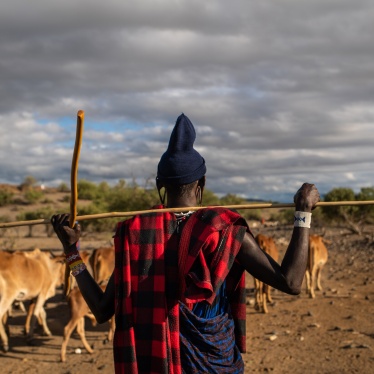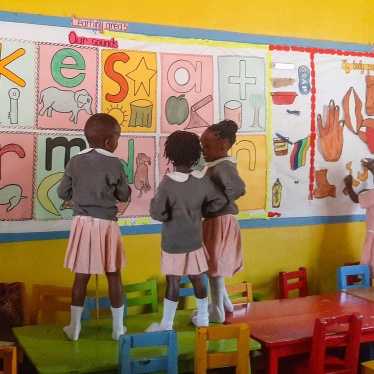(Lagos, February 23, 1999) - On the eve of Nigeria's presidential elections, multinational oil companies investing in the Niger Delta are failing to respond adequately to serious human rights abuse in that region, Human Rights Watch charged in a report released today.
In its eight months in office, the government of Gen. Abdulsalami Abubakar has released many political prisoners and relaxed some restrictions on freedom of expression and assembly. But the 200-page Human Rights Watch report documents how Nigerian security forces are using brutal methods to suppress dissent in the Niger Delta.
"The oil companies can't pretend they don't know what's happening all around them," said Kenneth Roth, executive director of Human Rights Watch, an international monitoring group based in New York. "The Nigerian government obviously has the primary responsibility to stop human rights abuse. But the oil companies are directly benefiting from these crude attempts to suppress dissent, and that means they have a duty to try and stop it." Roth noted that recent events in the Niger Delta, especially the crackdown on Ijaw communities over the New Year's weekend, indicate that the Nigerian government is continuing to use violence to protect the interests of international oil companies.
In one particularly serious incident on January 4, soldiers using a Chevron helicopter and Chevron boats attacked villagers in two small communities in Delta State, Opia and Ikenyan, killing at least four people and burning most of the villages to the ground. More than fifty people are still missing. Chevron has alleged to a committee of survivors of the attack that this was a "counterattack" resulting from a confrontation between local youths and soldiers posted to a Chevron drilling rig. Community members deny that any such confrontation took place. In any event, the soldiers' response was clearly disproportionate and excessive.
"Whoever wins this presidential election will have to cope with growing violence in the Niger Delta," said Roth. "The oil companies and the new government should commit to taking a new approach in the region, one that is based on zero tolerance for human rights abuse by the police and military."
Roth noted that the presidential campaign has included little serious debate over events in the Niger Delta and the role of the oil companies in human rights abuse there.
In the report, Human Rights Watch describes numerous other incidents in which the Nigerian security forces have beaten, detained, or even killed people who were involved in protests over oil company activities and individuals who have called for compensation for environmental damage. Victims include youths, women, children, and traditional leaders. In some cases, the abuse occurs after oil companies have requested that security forces intervene.
The report charges that multinational oil companies are complicit in abuses committed by the Nigerian military and police because they fail to condemn them publicly and to intervene with the Nigerian government to help ensure that they do not recur. In many cases, Human Rights Watch found that the oil companies had made no effort to learn what was done in their name by abusive local security forces seeking to keep oil flowing in the face of local objections.
Human Rights Watch strongly criticized the oil companies for excessive secrecy, and called upon them to make public their security agreements with state entities. It urged the companies to insist on screening all security staff assigned to protect company property, to investigate violent incidents, and to publish the results of those investigations. The companies were urged to take all necessary steps to ensure that their legitimate need to safeguard their facilities and personnel does not result in abuses against members of the communities where they operate.
Much of the protest against oil companies' activity in Nigeria has surrounded issues such as environmental pollution and corruption, which lie outside the mandate of Human Rights Watch. But the need to respect civil and political rights, such as freedom of expression and association, fall squarely within the international human rights treaties that Nigeria has signed, such as the International Covenant on Civil and Political Rights.
Nigeria is the largest oil producer in Africa, pumping more than two million barrels a day. This oil is produced by multinational oil companies operating in joint ventures with the Nigerian government. The Dutch-British corporation Royal Dutch/Shell accounts for nearly half of this production and has faced the strongest criticism of its corporate behavior. Perhaps for that reason, Shell responded most fully to questions from Human Rights Watch about its policies and practices and about specific incidents of human rights abuses connected with its operations. The U.S.-based oil corporations Chevron and Mobil also answered some questions, while France's Elf Aquitaine and Italy's Agip provided almost no information at all. None of the oil companies responded to requests to provide details of security arrangements with the Nigerian government.






